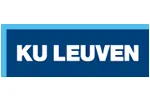We're moving! This site will be relocating to goingto.university in 2026. Please update your bookmarks to the new address.


| The award | How you will study | Study duration | Course start | Domestic course fees | International course fees |
|---|---|---|---|---|---|
| MSc | Full-time | 2 years | September | - | - |
We live in a digital world. Computers and software play a central role in society: in companies, in education and research, and in our daily lives. Year after year, our daily activities become more connected with the digital dimension. In this context, the Department of Computer Science steers the most novel evolutions and develops the technology required for the next generation of applications.
What's the programme all about?
The Master of Computer Science will teach you how to lead advanced software projects with as main aspects the specifications, the design, the implementation, the testing and the maintenance of software systems. You will learn to analyse complex problems in a structured way, and to model and reason about them at different levels of abstraction. Furthermore, you will receive training in the necessary, transferable skills to tackle complex research questions, formulate your own research goals, and successfully achieve them, as well as tools for achieving effective communication; stimulating a broad societal view on the relevance of computer science and technology today.
To acquire knowledge and understanding of a formal disciplined approach to computer science, the programme includes a range of relevant concepts, tools and techniques, such as algorithms, programming language concepts, programming skills, software design patterns, software development methods, and software architectures. The programme also includes the theoretical principles underpinning these topics. This is a solid basis to cope with future developments in computer science.
Programme outline
The programme is structured around a mandatory core (48 credits), which includes courses on software development, software architecture, programming, modelling languages, machine learning, and theoretical foundations.
Students then opt for one of two advanced specialisation areas: software security or artificial intelligence. In both specialisations you will conduct your own research and develop novel technology, guided by top experts in the international research community.
The master’s thesis covers 24 credits and is started at the outset of the second stage. General education courses (8-10 credits) cover a wide variety of topics such as advanced language courses, economy, law and advanced mathematics courses.
Strengths
KU Leuven Online Open Day
Discover KU Leuven and its wide range of degree programmes at our Online Open Day! For more information, head to www.kuleuven.be/onlineopendays
Below are some suggested courses at other providers that you may also be interested in:
Undergraduate Certificate in Civil Engineering UG:Certificate
Engineering Institute of Technology
Find out moreFashion Communication Management Master Degree
IIFM | Italian Institute of Fashion Management
Find out moreManagement, Policy Analysis and Entrepreneurship in Health & Life Sciences - Community-based Health Technologies Master Degree
Vrije Universiteit Amsterdam
Find out moreIf you do not meet the entry requirements for this course then consider one of these postgraduate preparation courses from another institution:
Graduate Diploma of Engineering (Safety, Risk and Reliability)
Engineering Institute of Technology
Find out moreGraduate Diploma of Professional Accounting (FedUniv at IIBIT)
International Institute of Business & Information Technology (IIBIT)
Find out moreThere are 123 other courses listed from KU Leuven. A selection of these are displayed below:
Join the StudyLink email list and never miss a chance to turn your study abroad dreams into reality!
